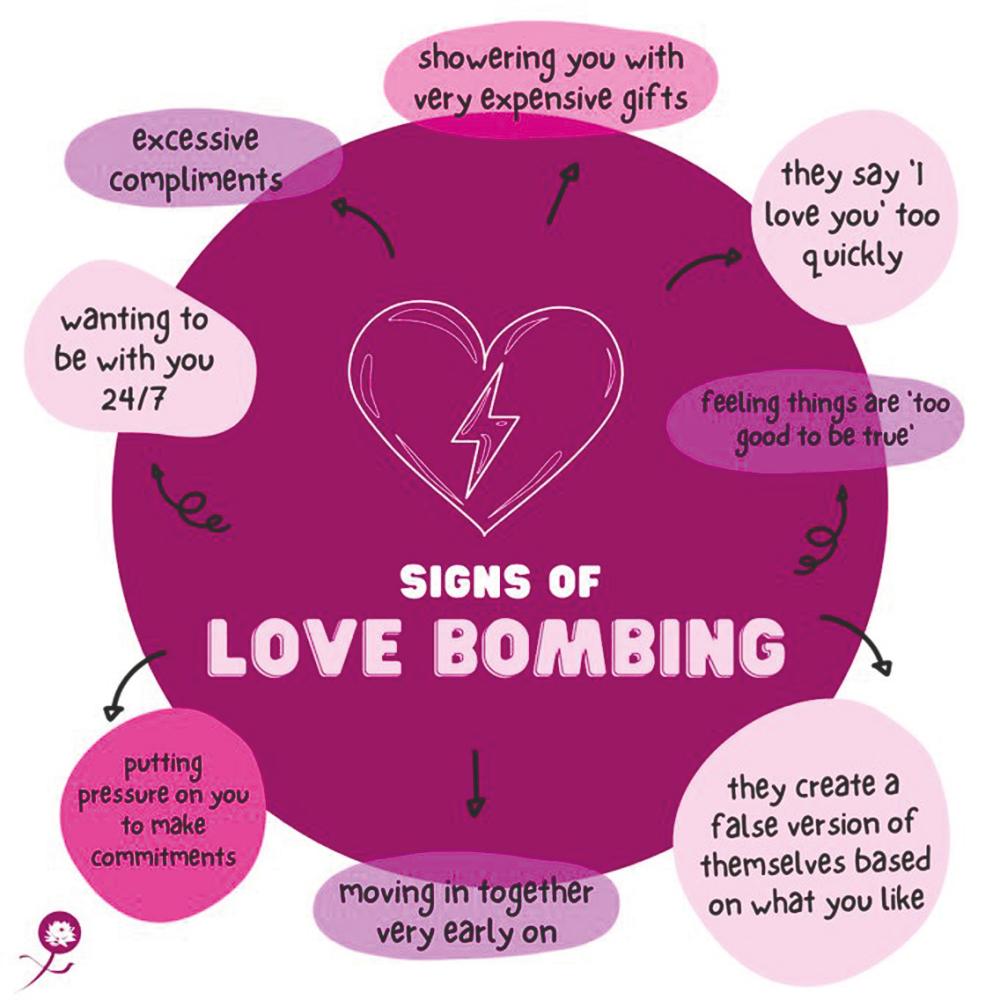WHEN the topic of red flags in early relationships come up, factors such as financial security, behaviour in public vs in private, certain behavioural ticks such as cleanliness, whether boundaries exist and jealous are commonly floated around. Yet, love bombing isn’t even considered a red flag for many, despite it playing a crucial role in fostering unhealthy dynamics in a relationship.
In order to understand why love bombing is a red flag, one should first understand the distinction between showing a partner genuine extra attention, and, well, bombing them with false affection rooted in manipulation.
Ignoring a red flag such as this could lead to a toxic relationship – or something more dire.
Big, neon signs
That said, love bombing has very obvious cues or signs, which thankfully helps in identifying whether the new person you’re dating is a “love bomber” or just regular human being.
OVERLOAD:
Everyone enjoys attention from their significant other, man or woman, especially as this is common in the early stages of a relationship; but for those in a relationship with a love bomber, it tends to go overboard, often right at the start.
For instance, they could be – initially – showering you with (expensive) gifts, or flooding you with romantic texts daily, or worse, start saying “I love you” within the first few days or weeks.
The latter is a subsection of a different love bombing sign, as the ‘compliments’ – particularly those in the realm of “You’re the one” or “You’re my soul mate” – comes before the love bomber even knows the other person at a deeper level.
INCONSISTENCY:
This sign ties into the previous sign. While love bombers are known to go overboard with their affection, eventually it becomes less frequent, with the gap between both ‘modes’ slowly growing wider.
Psychologists say the larger it is between both behaviours, the higher the likelihood is that the love bomber is a pathological narcissist.
MANIPULATION:
Again, this ties into the previous sign. Narcissism is a clinical disorder, where a narcissist believes the world revolves around them due to an inflated, self-perceived value of themselves.
“A narcissist’s self-worth is so low that they overcompensate with love bombing so they can receive the reciprocated love and affection they need to maintain their self-worth,” Behr Psychology director Jessica January Behr says in an online piece.
On the angle of manipulation, a love bomber will often construct plans for their partner to do with them, and expects them to abide by it.
However, if the partner has other plans that doesn’t involve the love bomber, all hell will break loose.
Love bombers are known to leverage on manipulation to control the other person i.e. “I did/gave all of this for you, why won’t you do the same?”

What next
If you suspect you’re currently under ‘attack’ from a love bomber, take immediate action the way you would if you believe you’ve fallen sick; get an objective opinion from one or more external sources.
Relate your experiences with the suspected narcissist to friends and family, and get their opinion on whether the behaviours are normal or healthy.
Friends or family members in actually-healthy relationships are in a good position to evaluate the matter, as they have their own lived-in experiences to juxtapose with whatever insanity you might be experiencing with a suspected love bomber.
If it turns out that he or she is one, there are really only two options; confront them diplomatically if you feel there is room for them to change and improve (if you feel the relationship is worth it), or simply end the relationship if you feel the severity and toxicity is irreparable.









